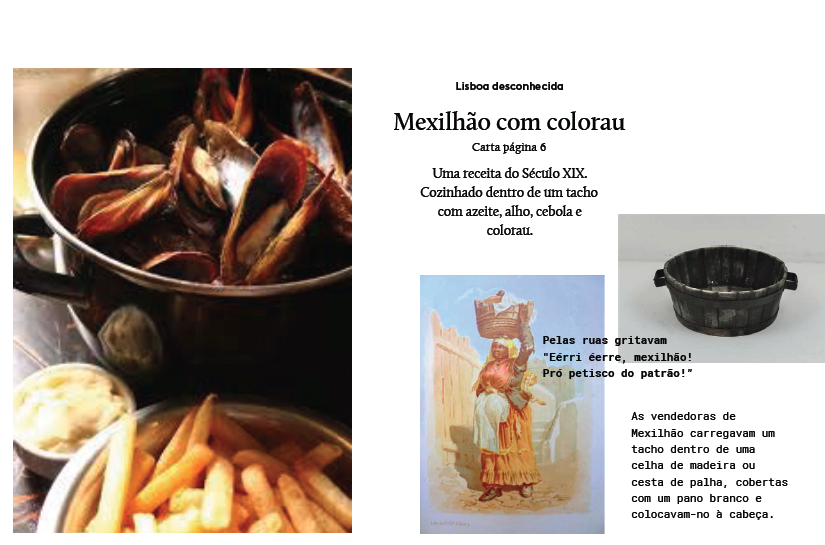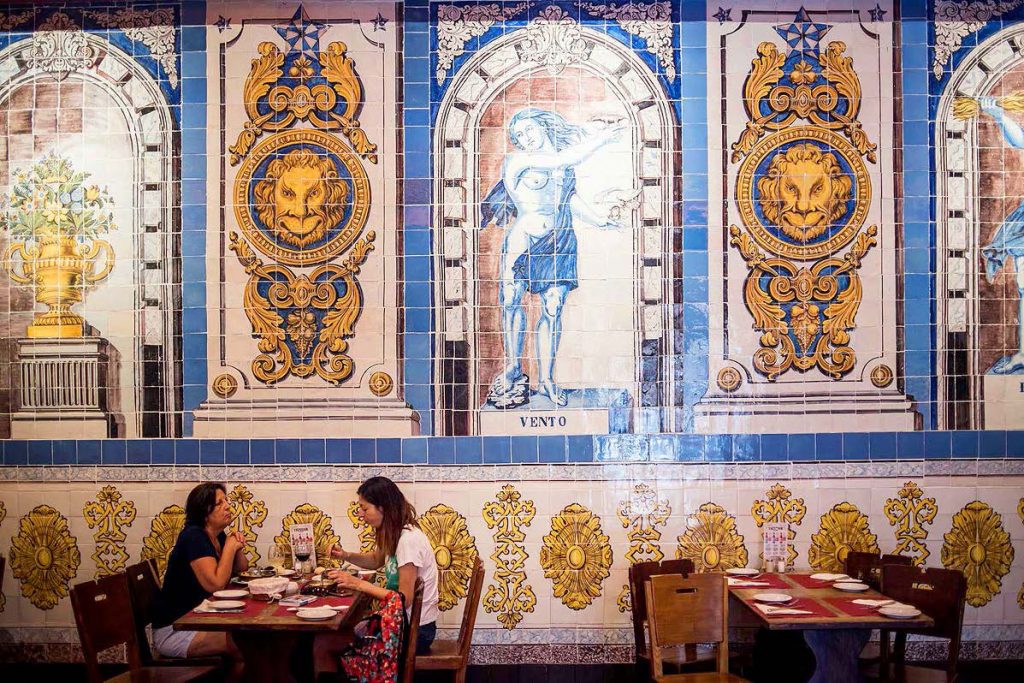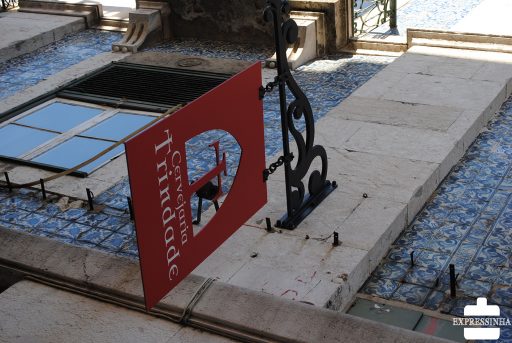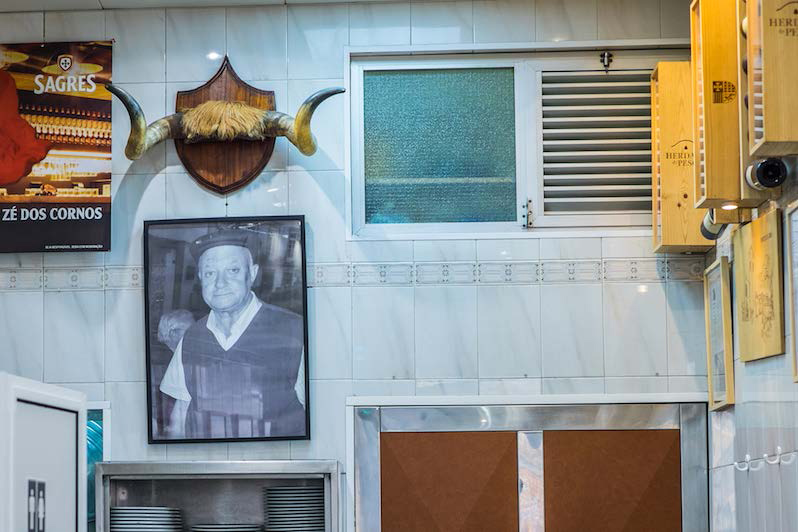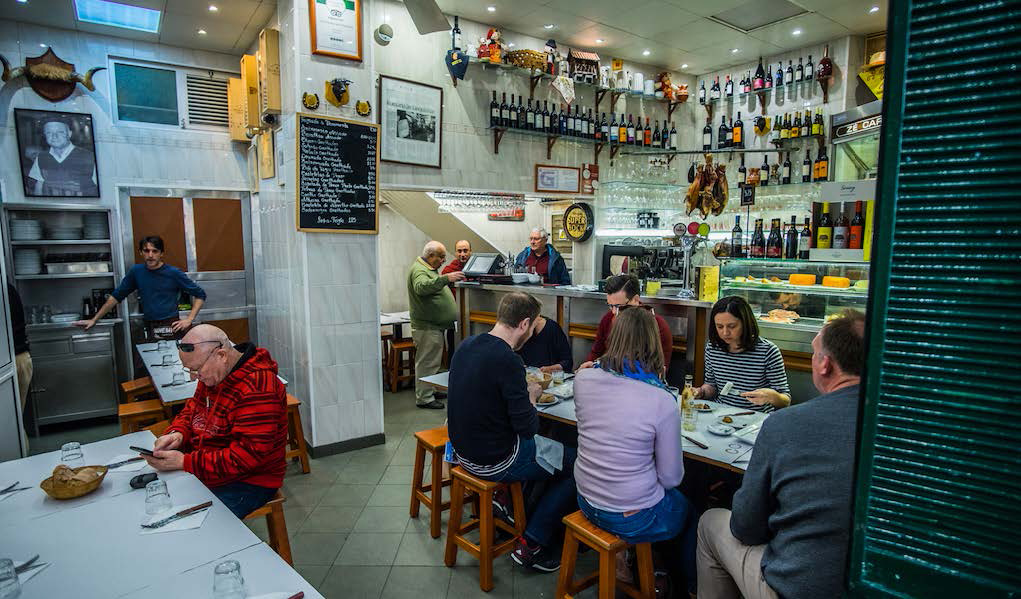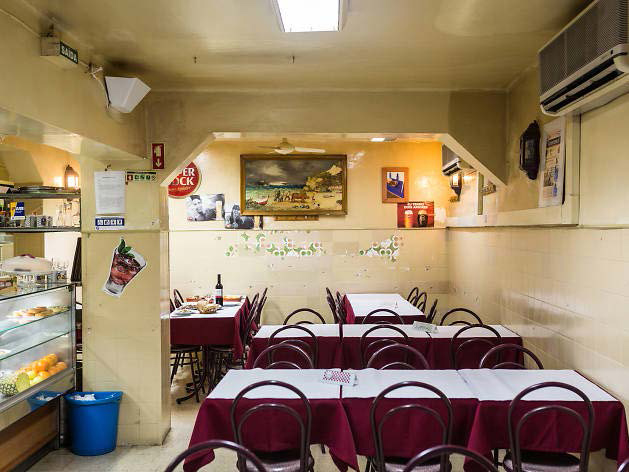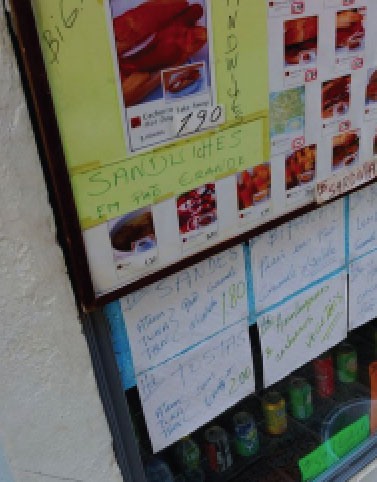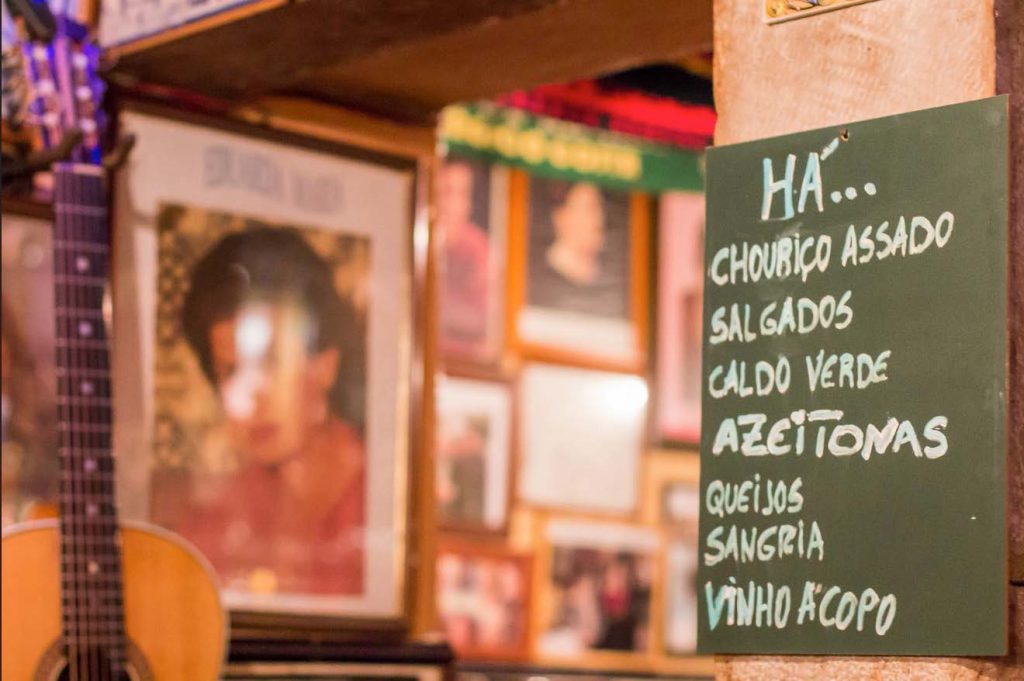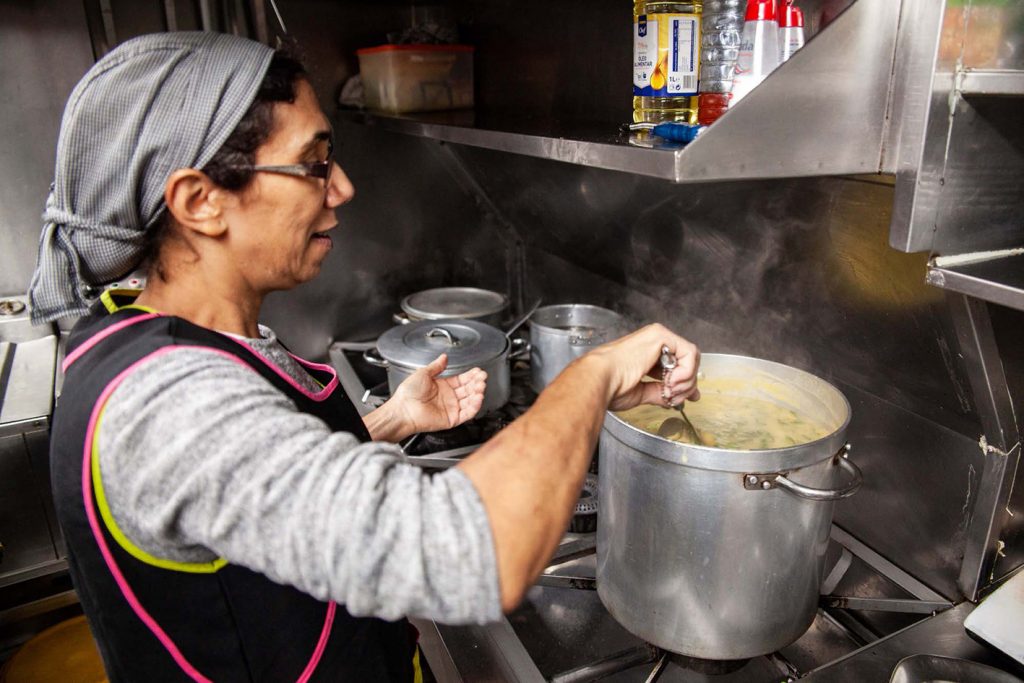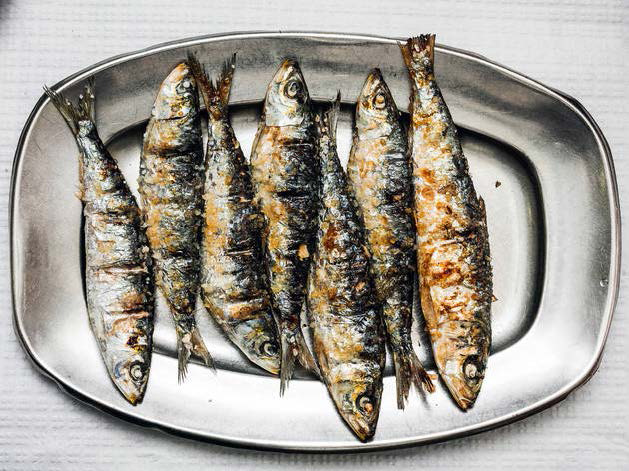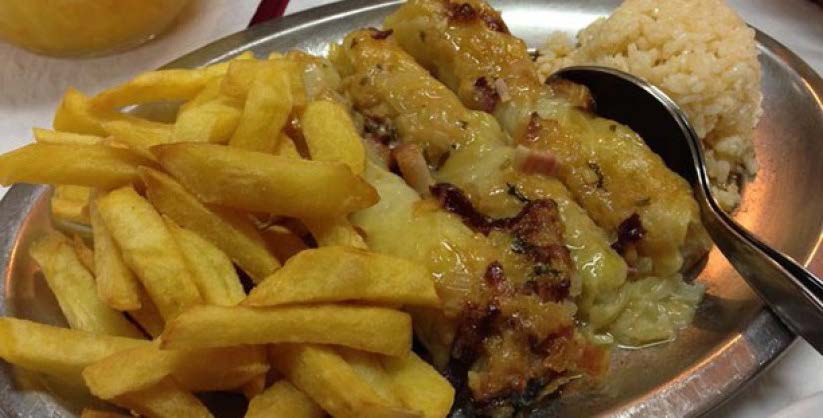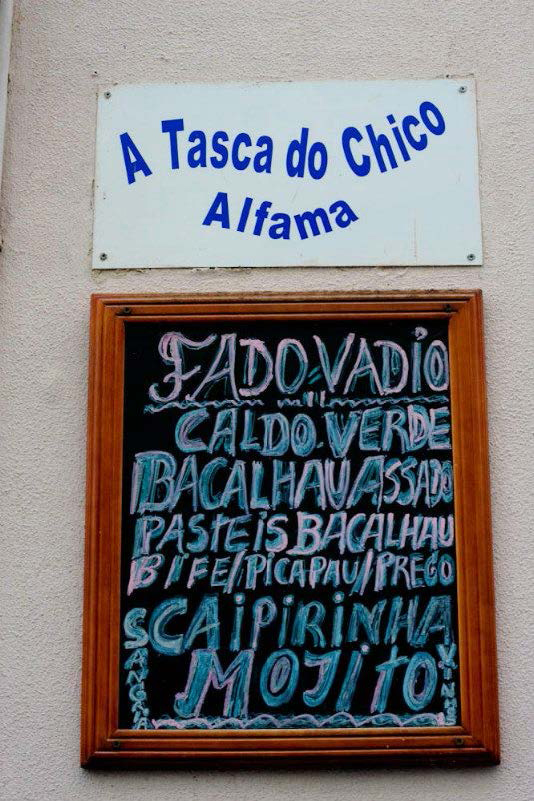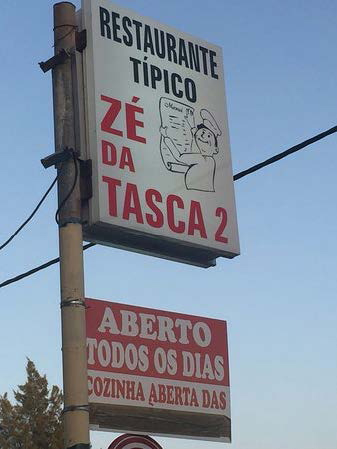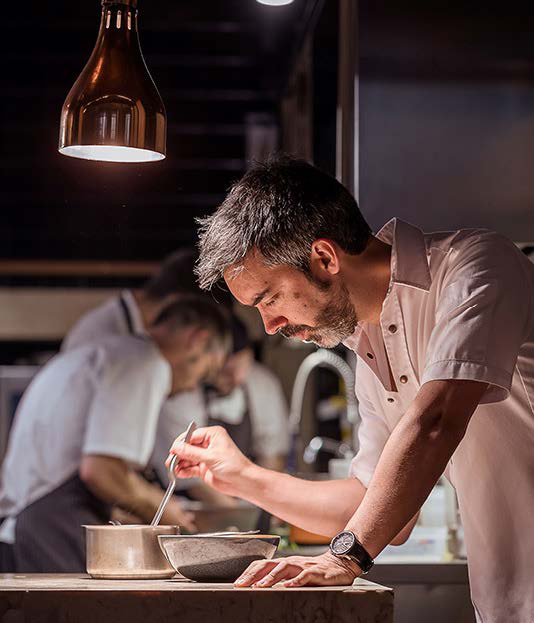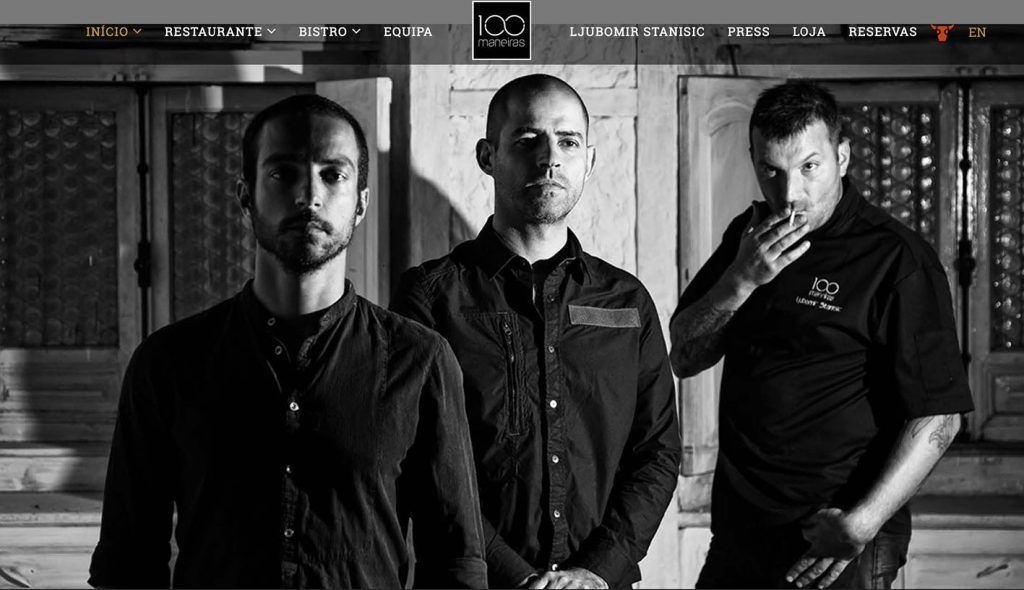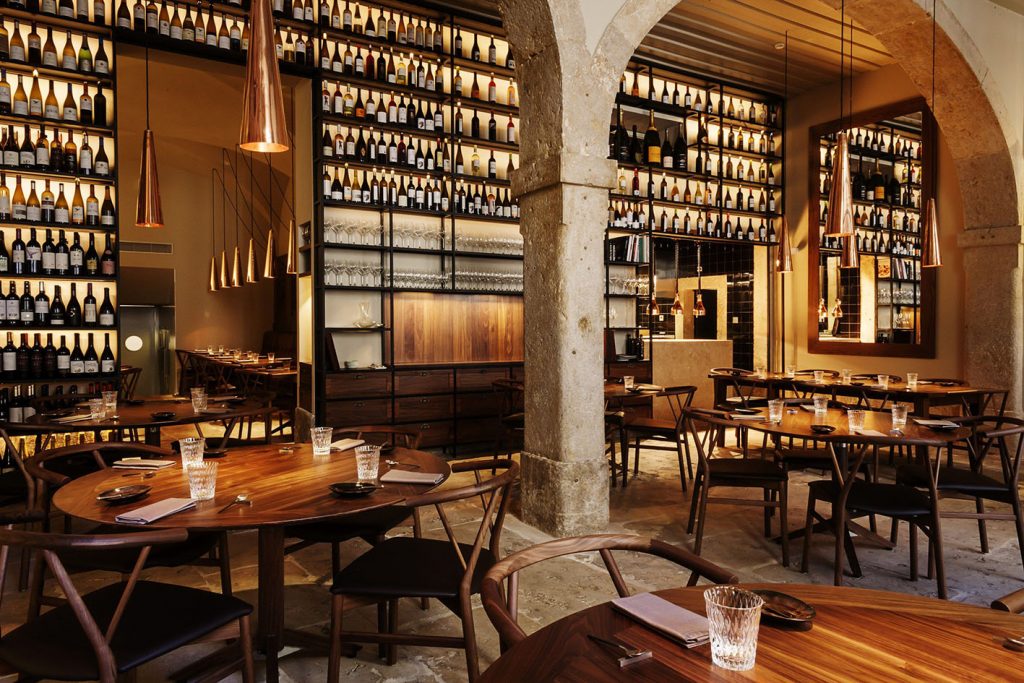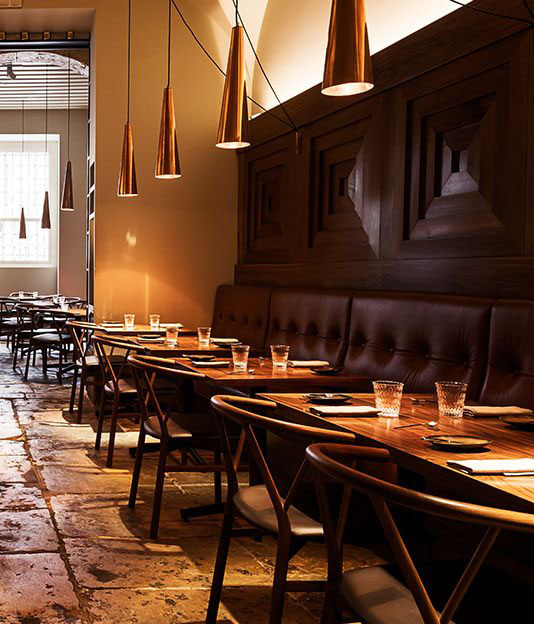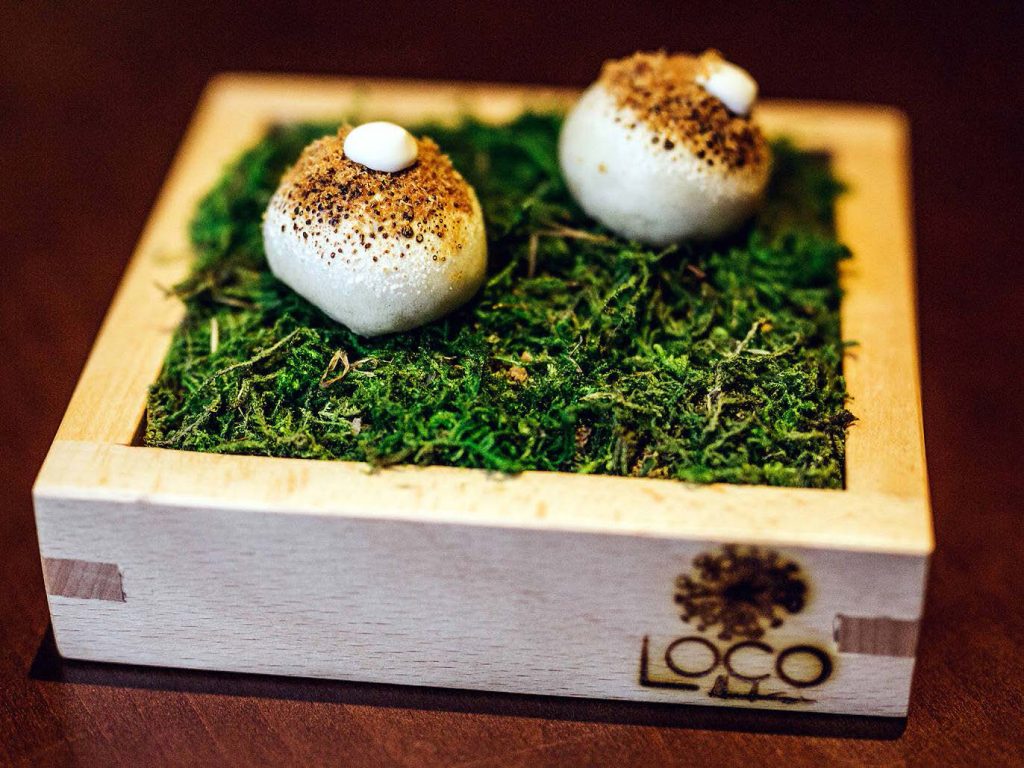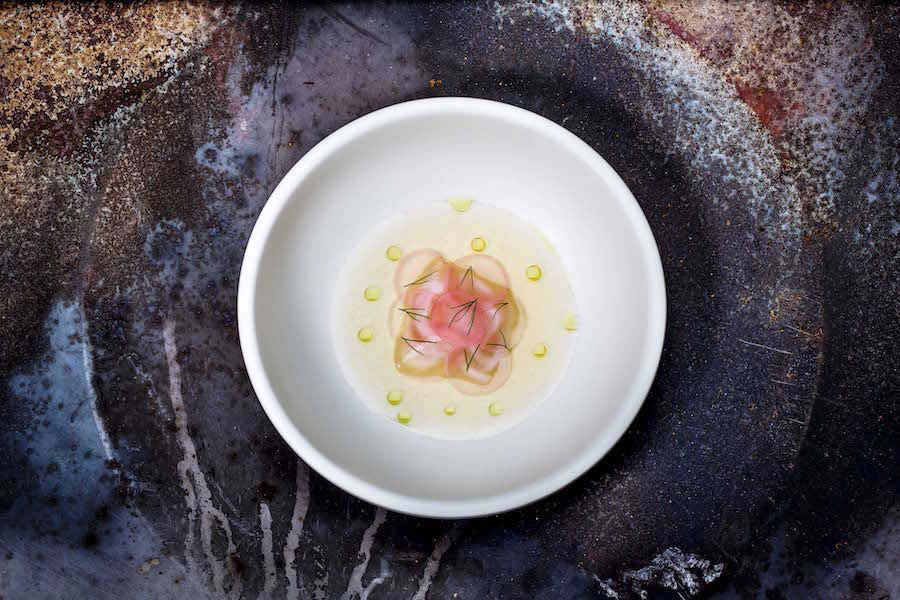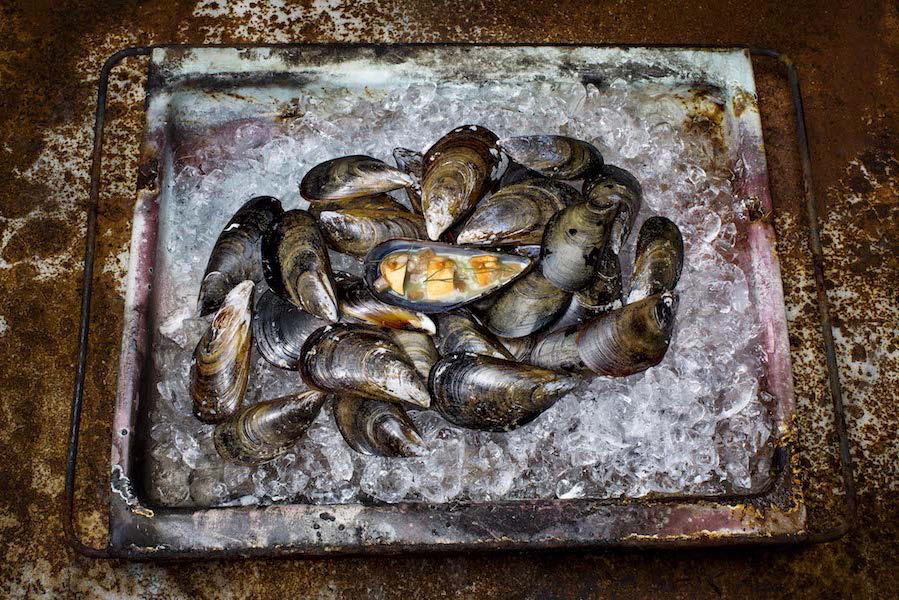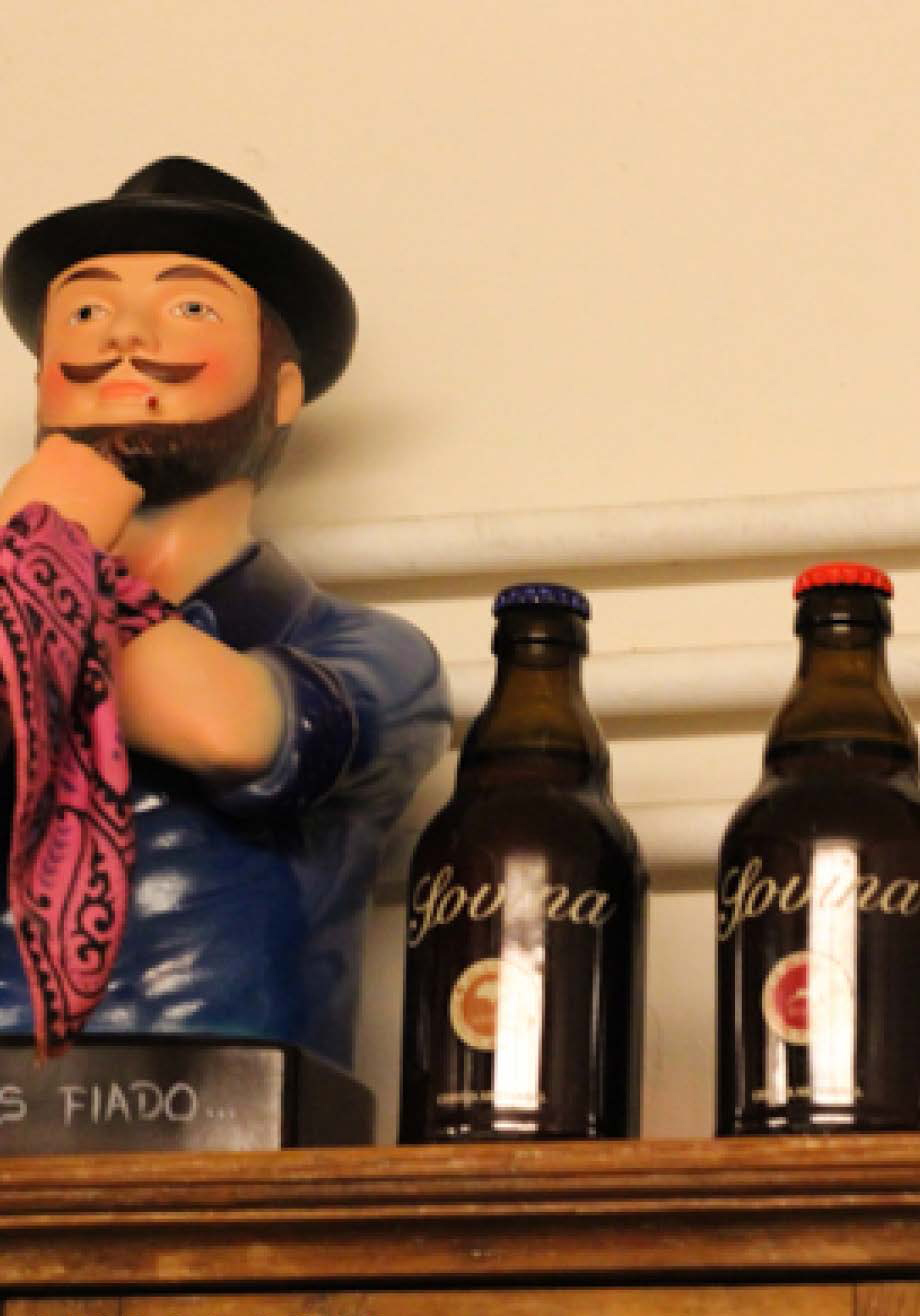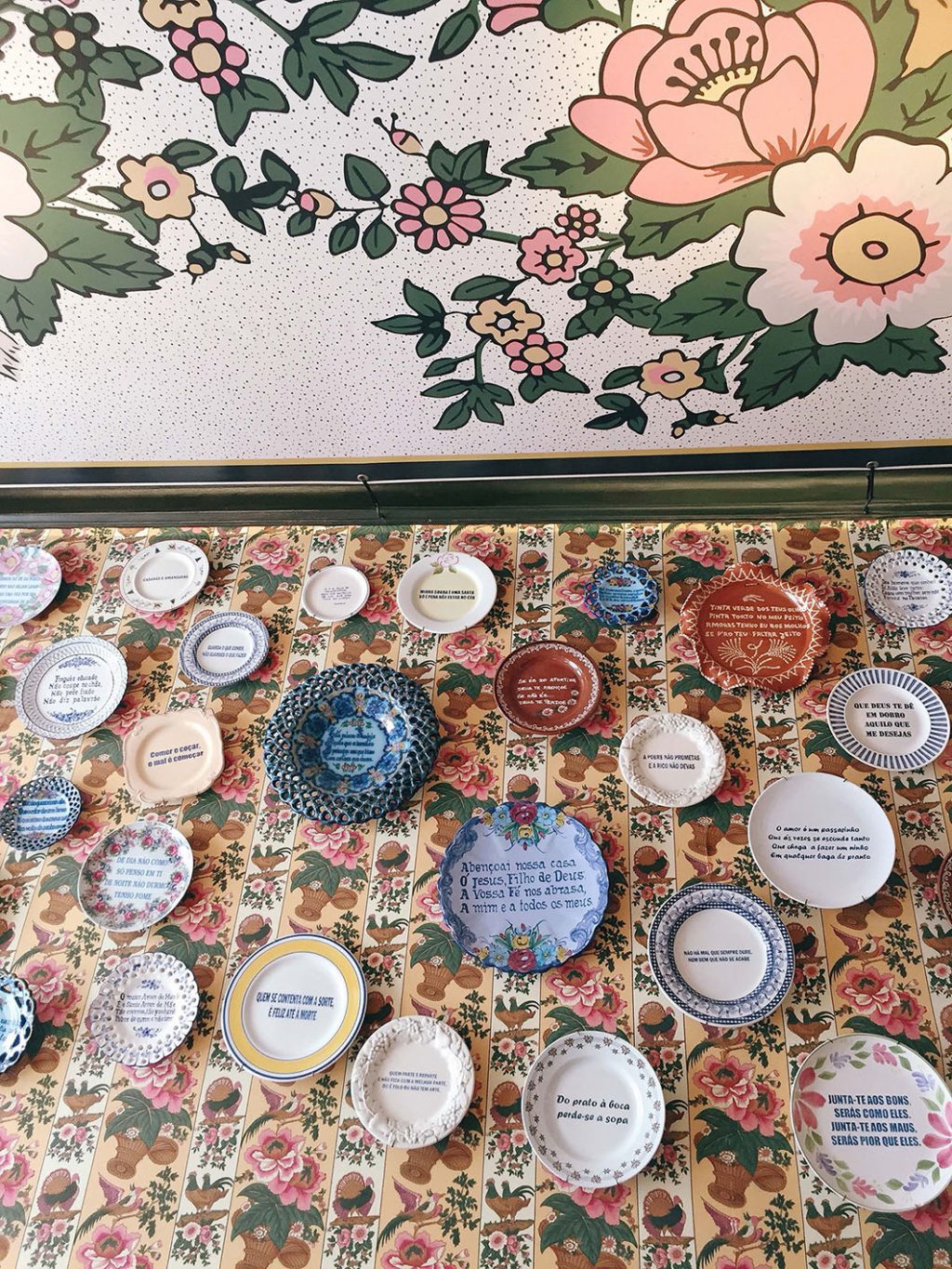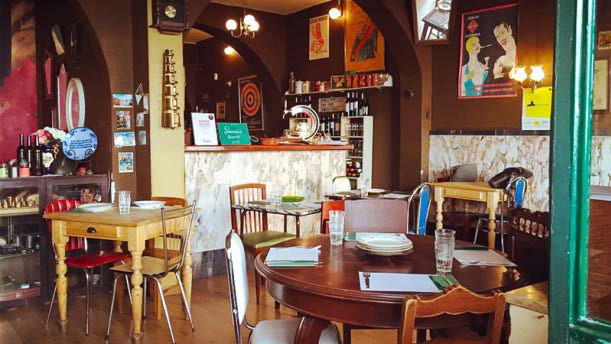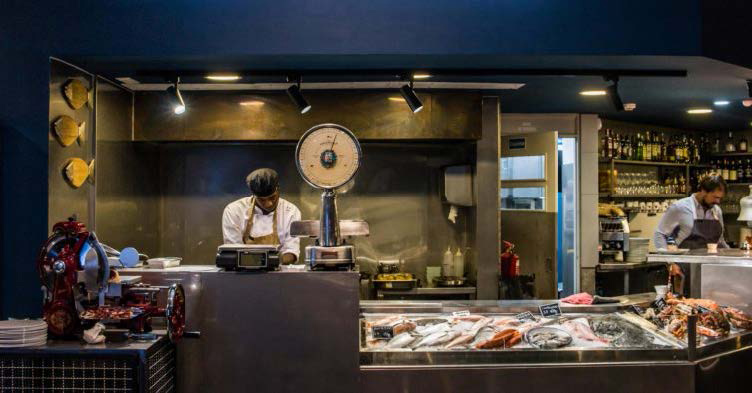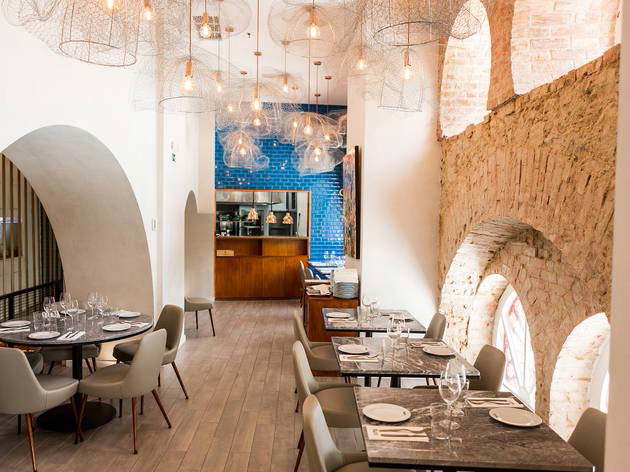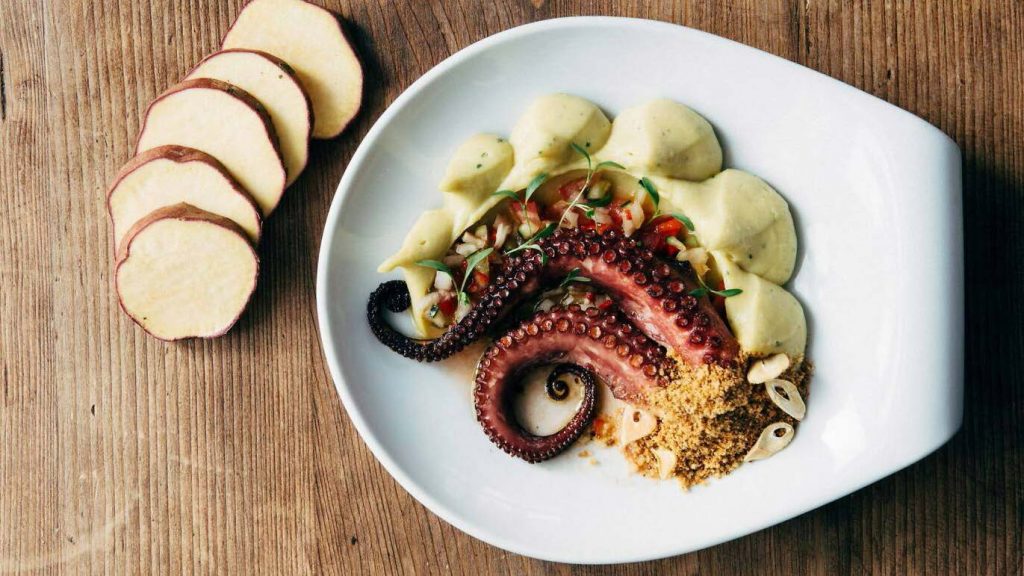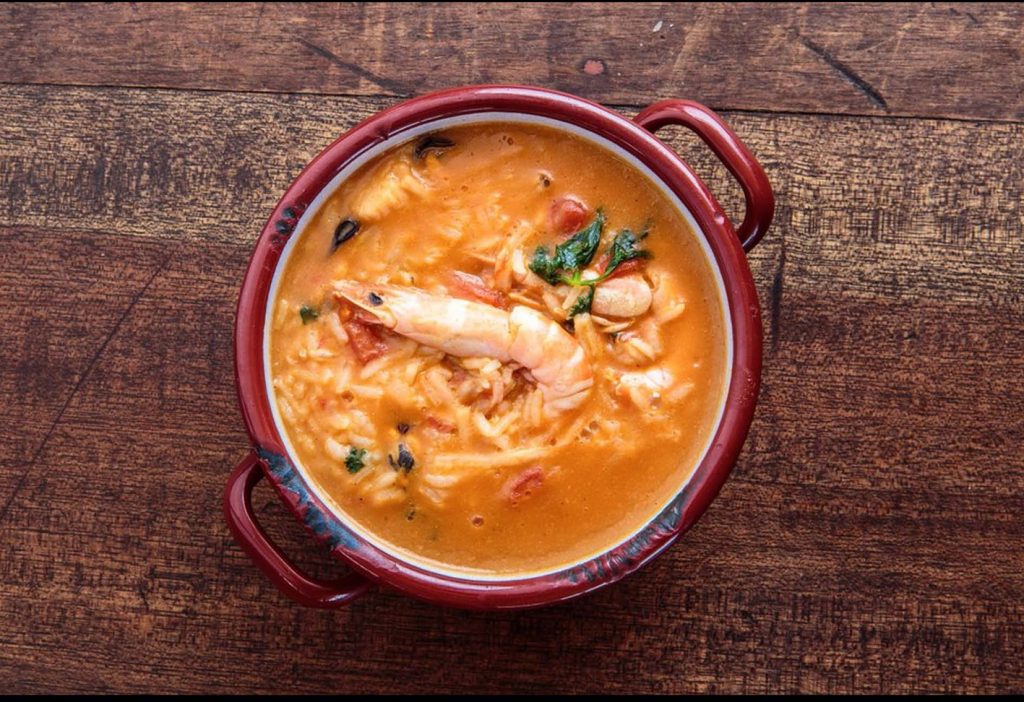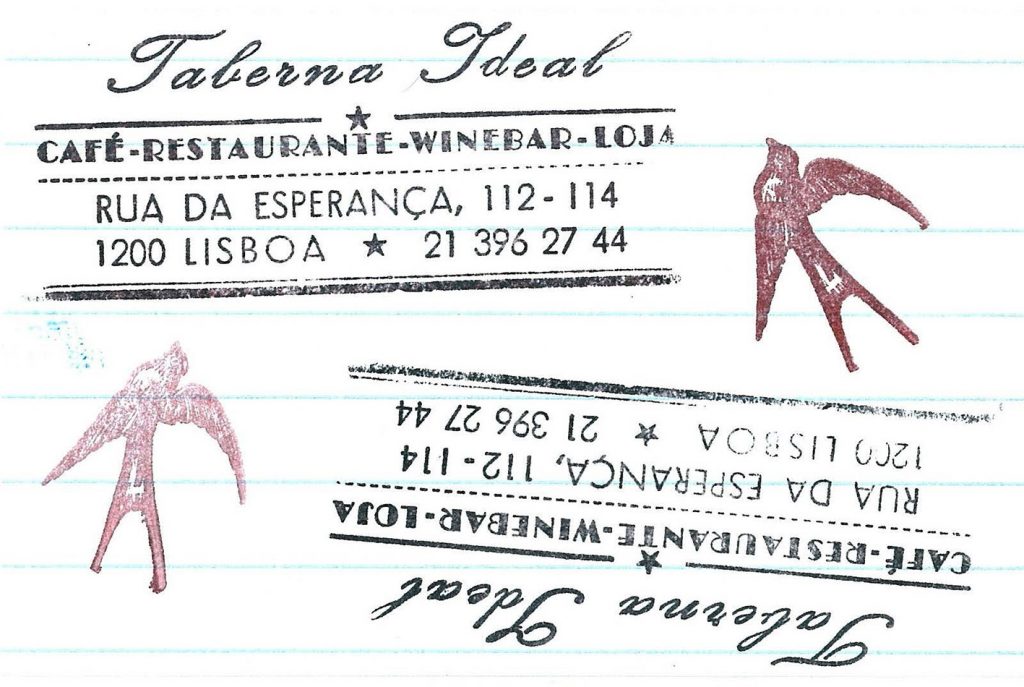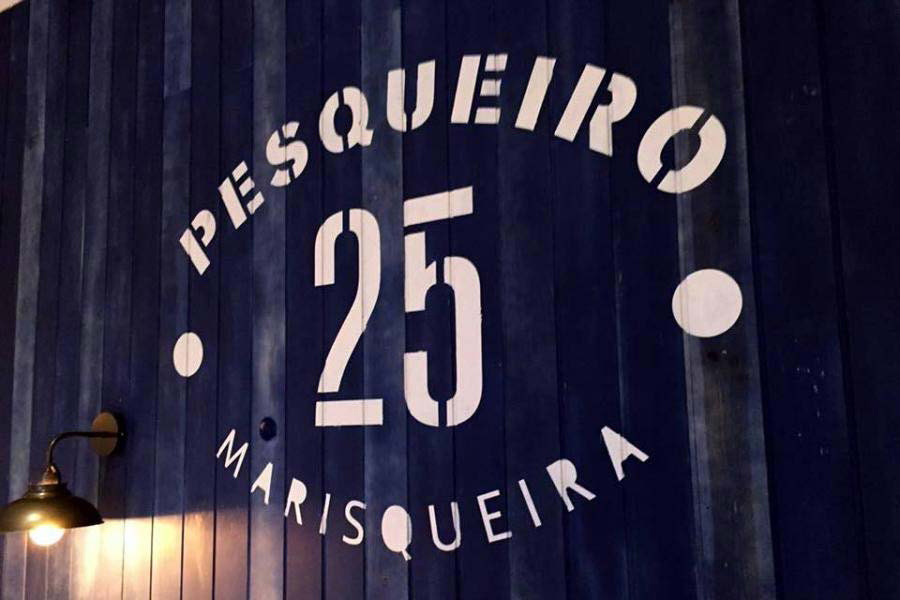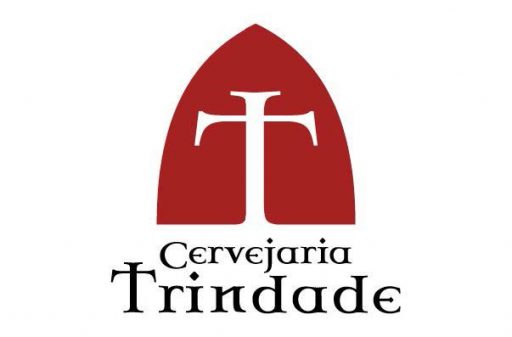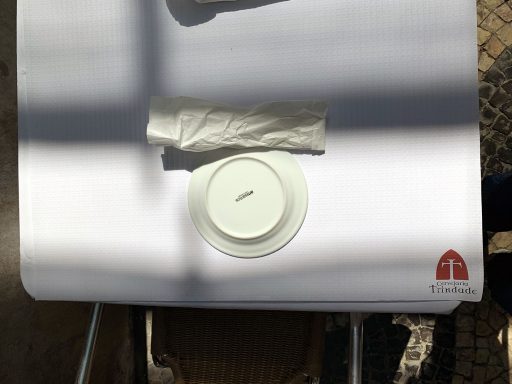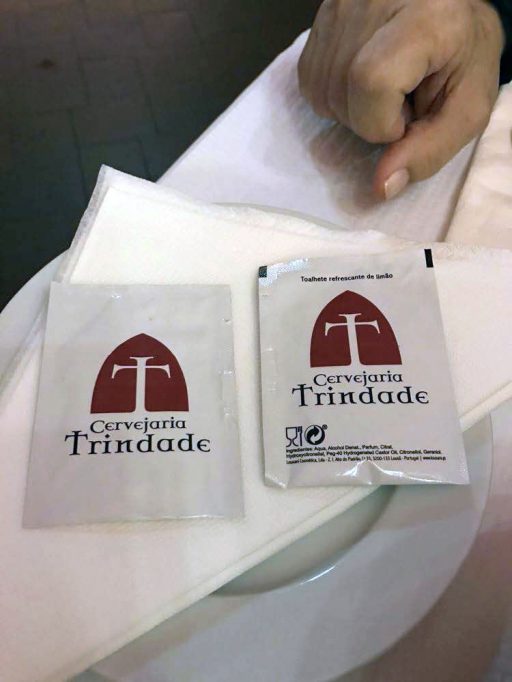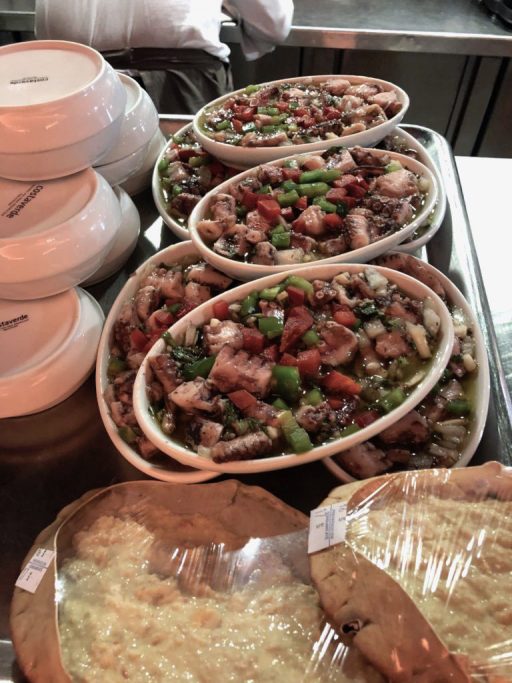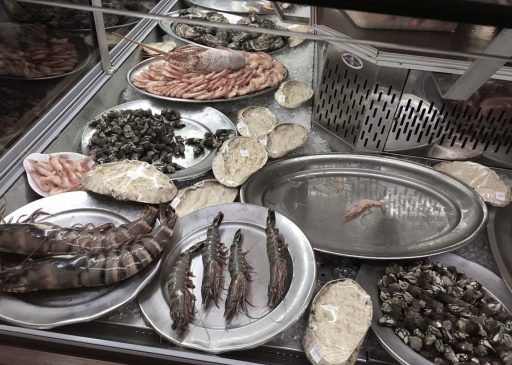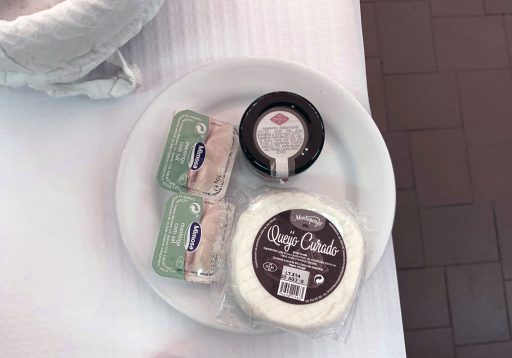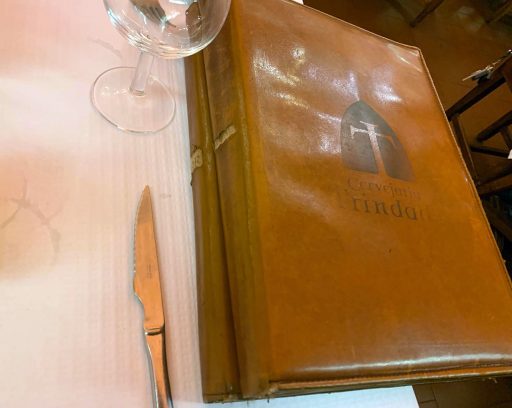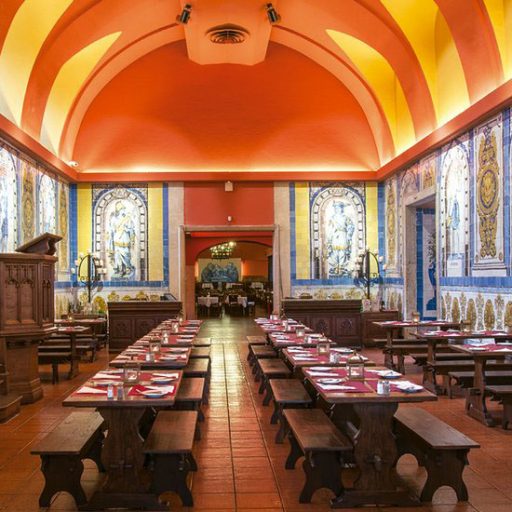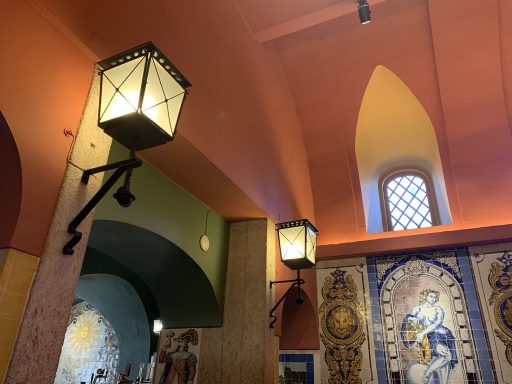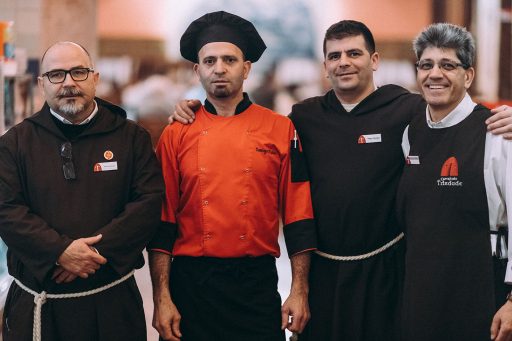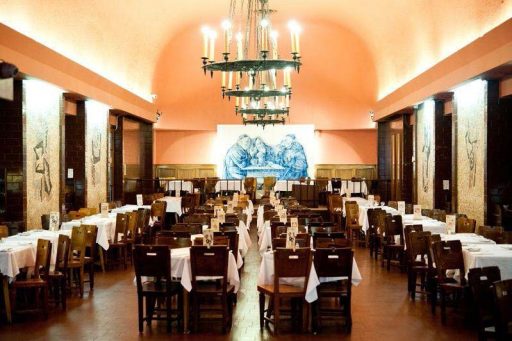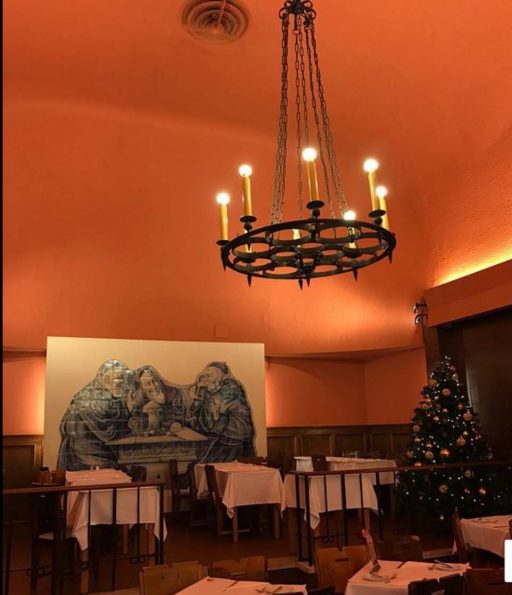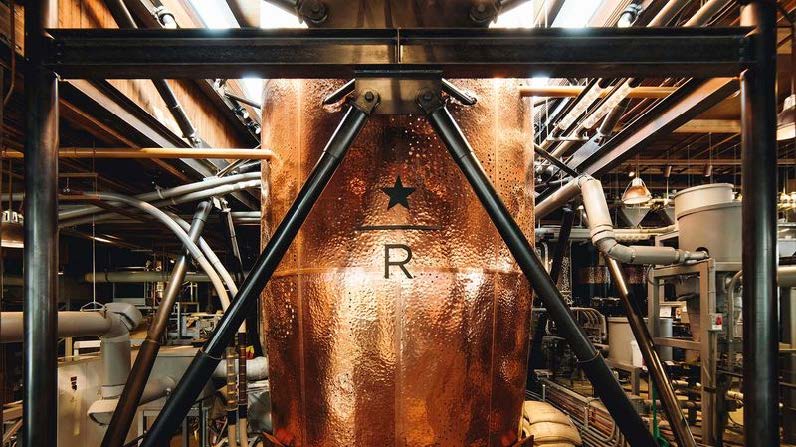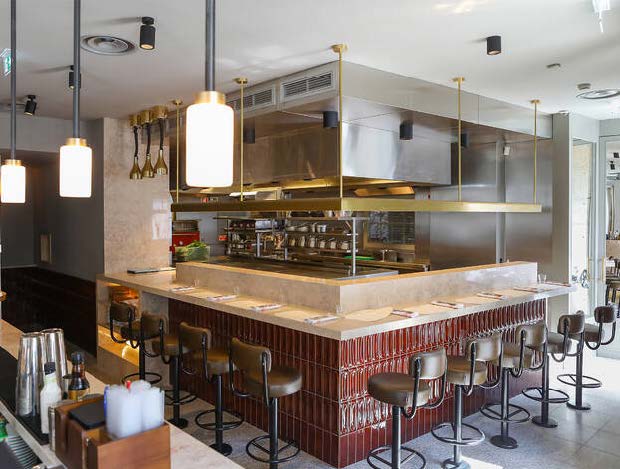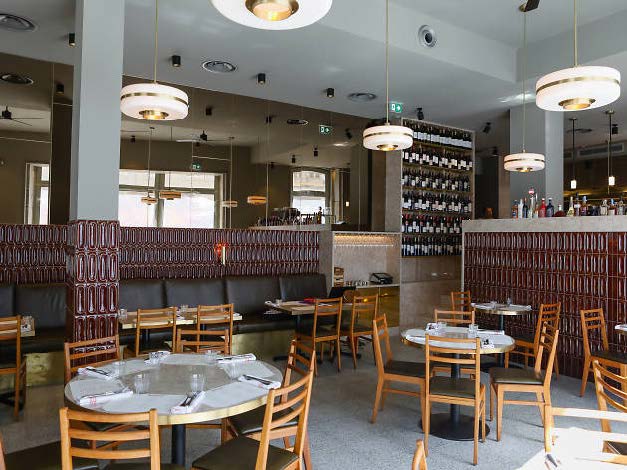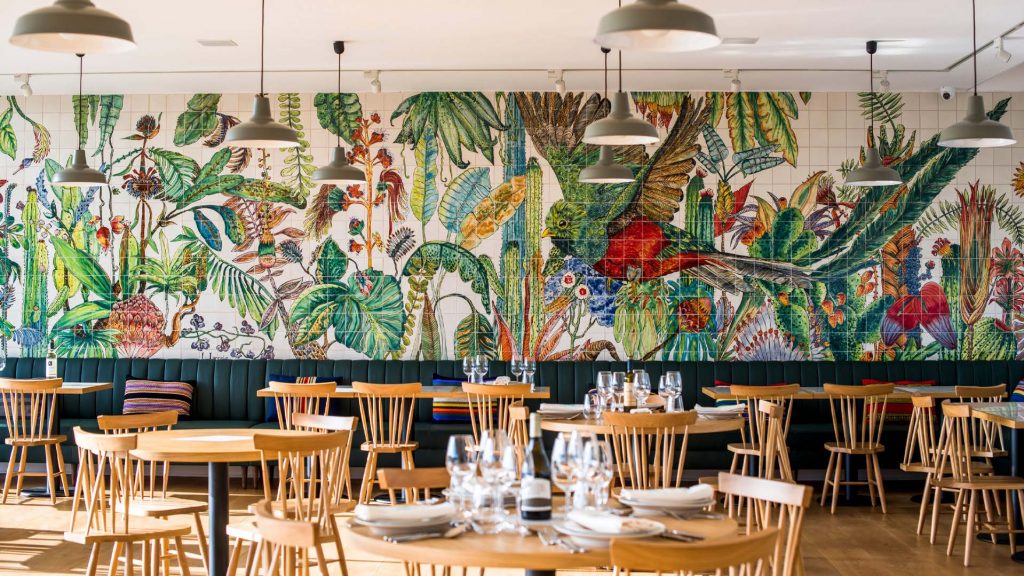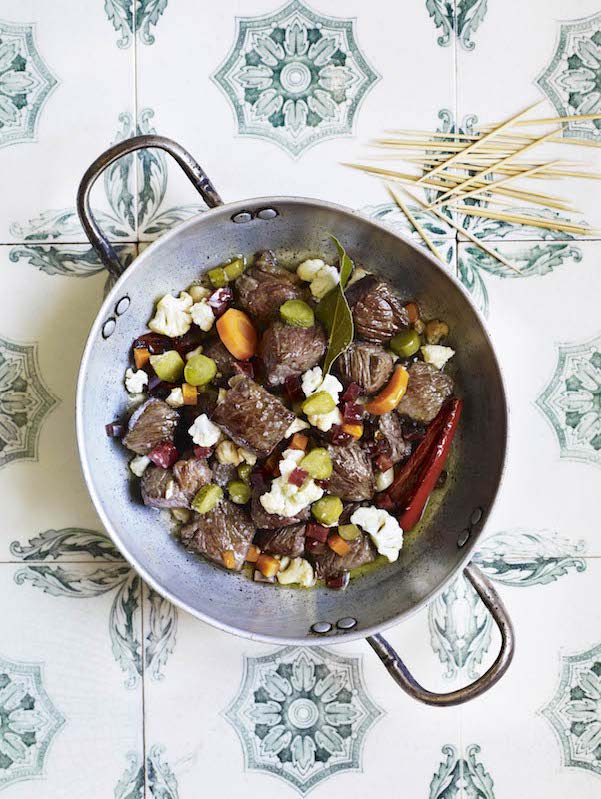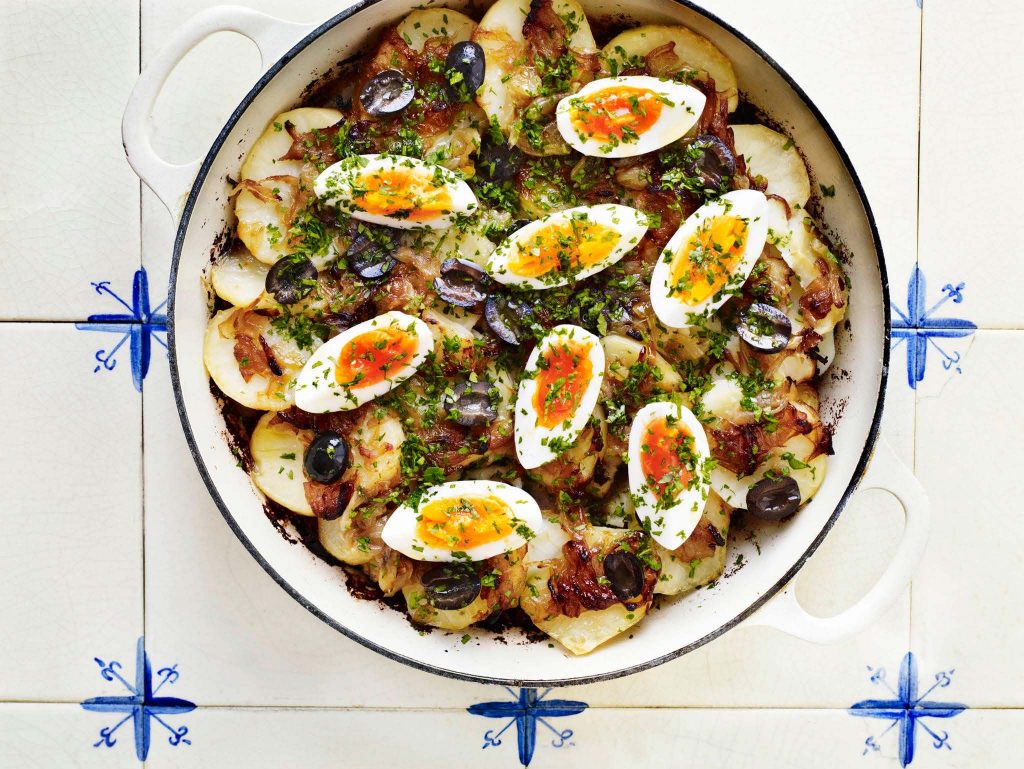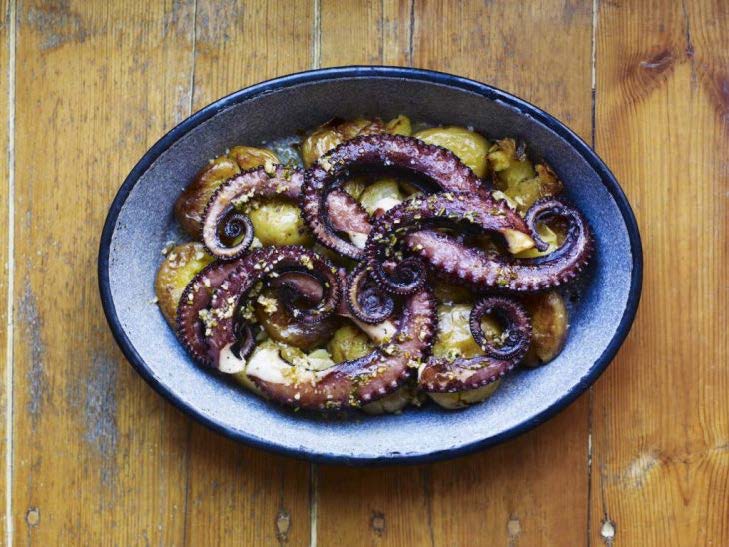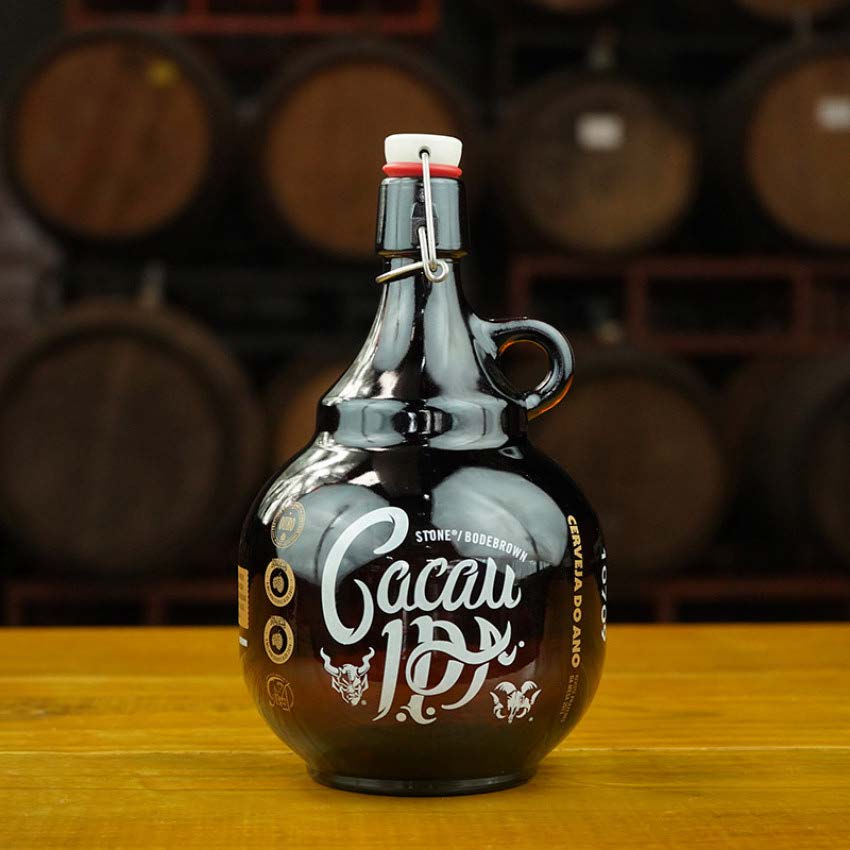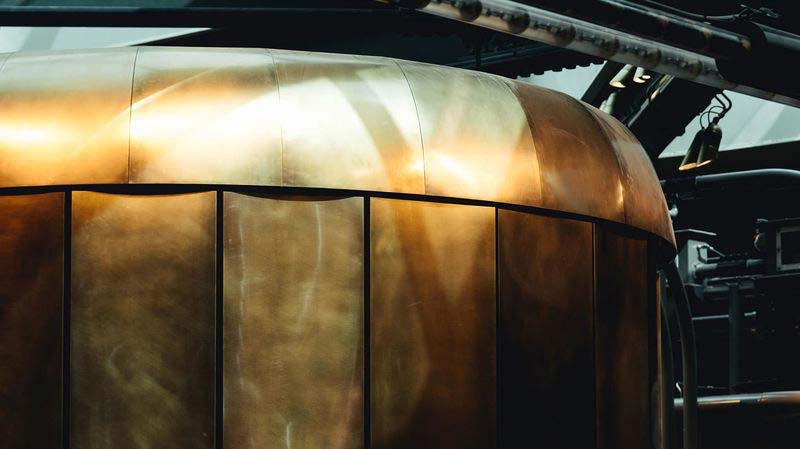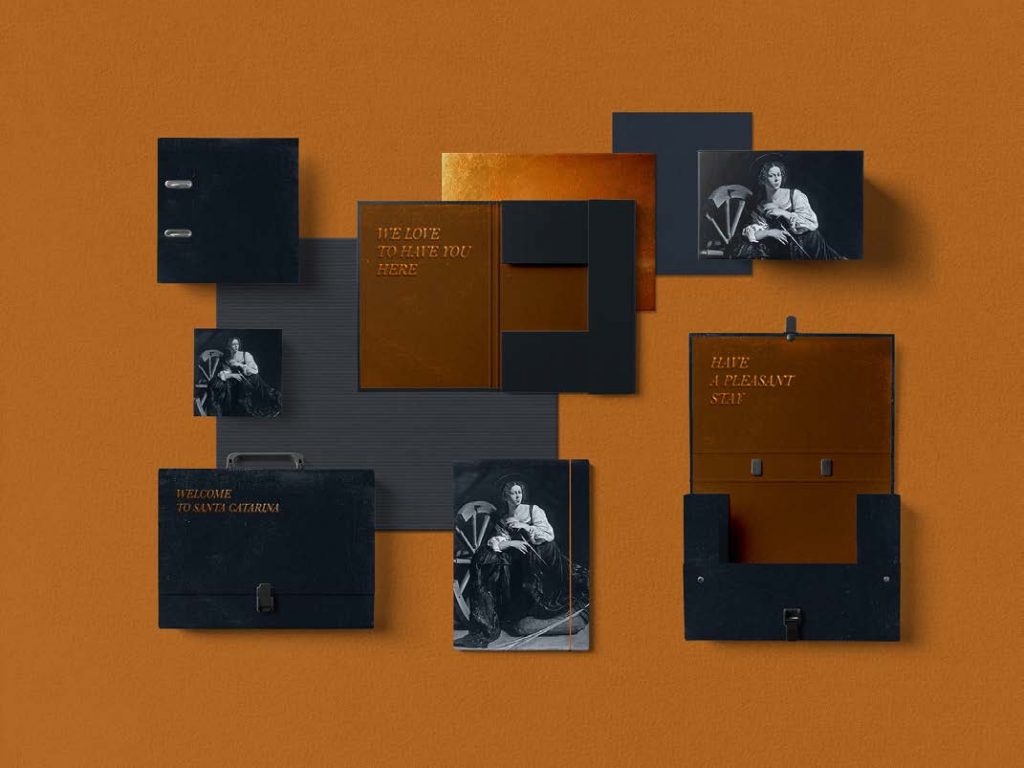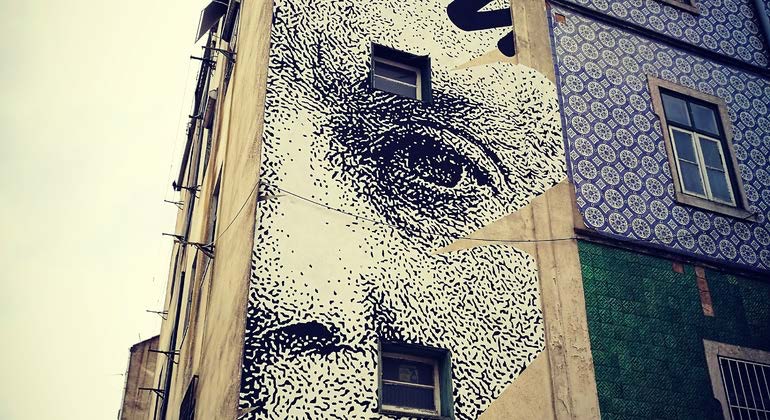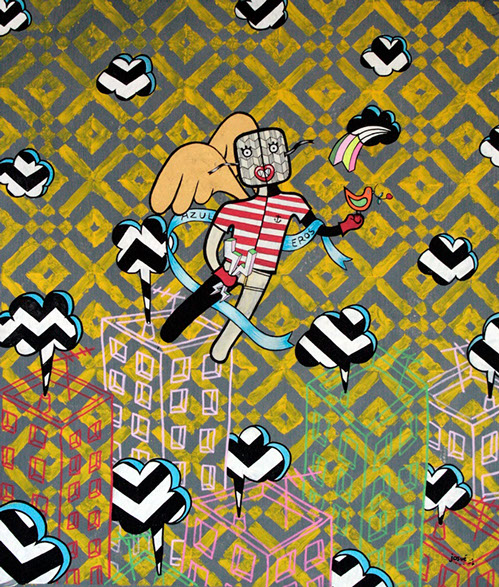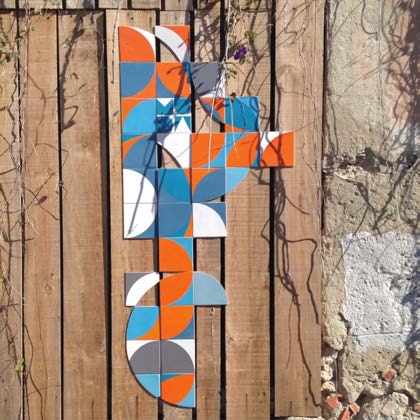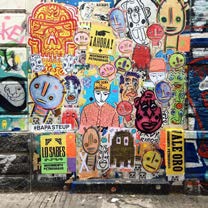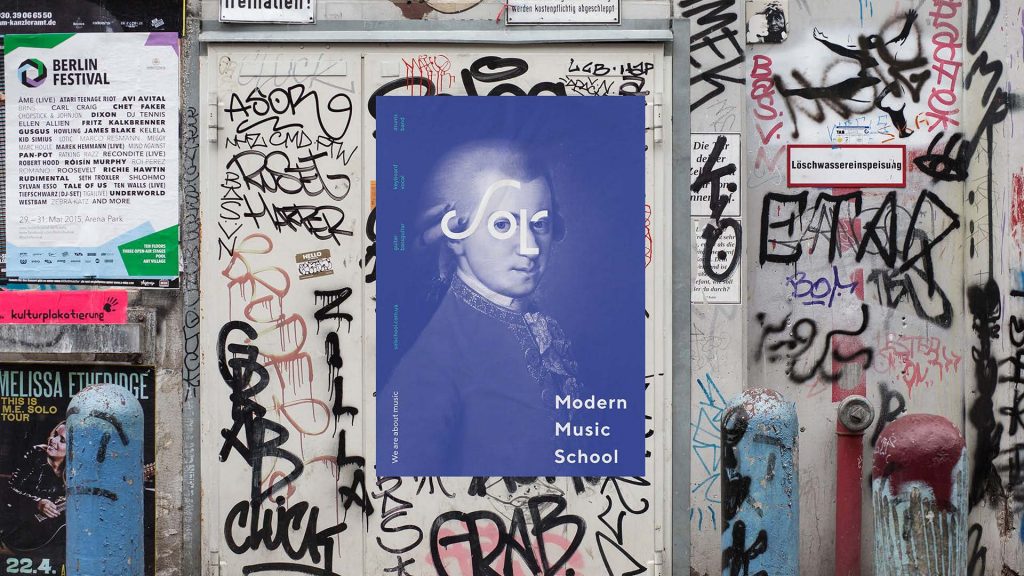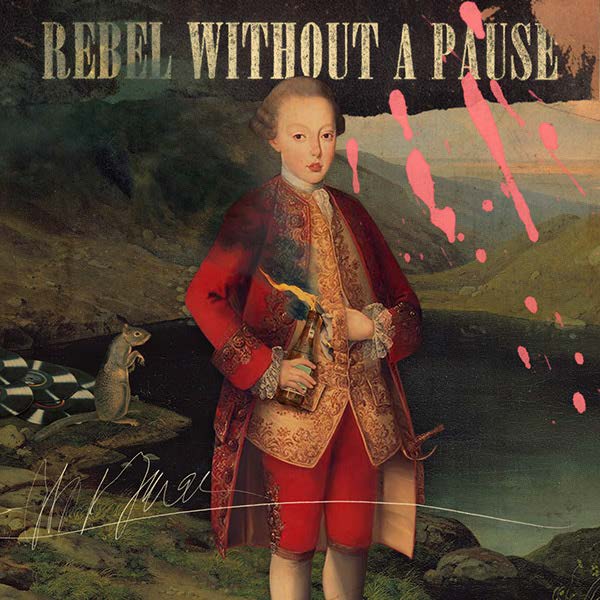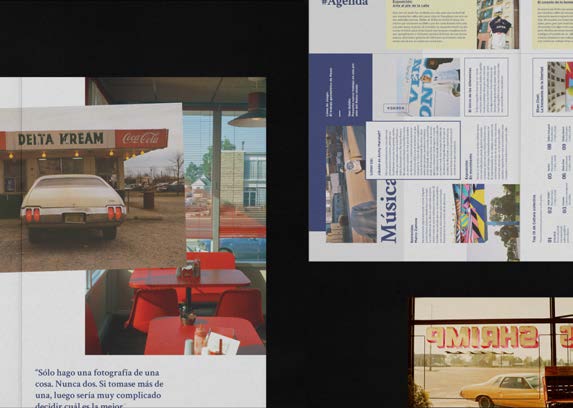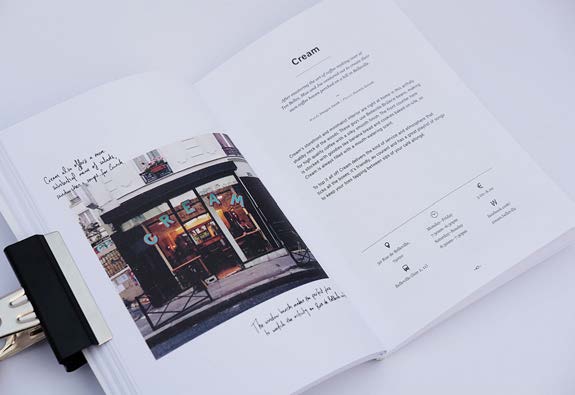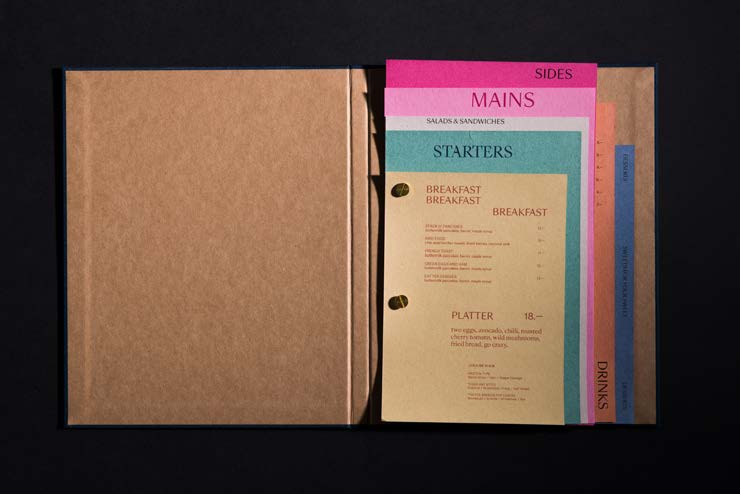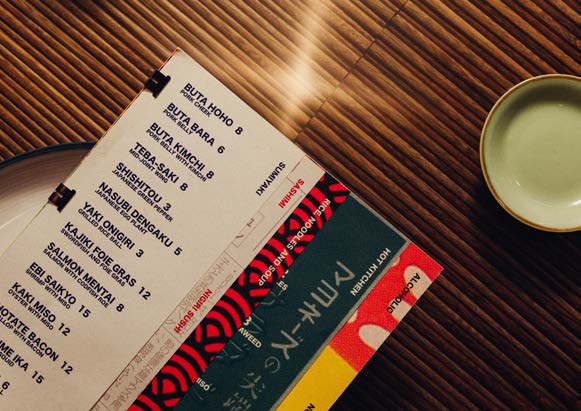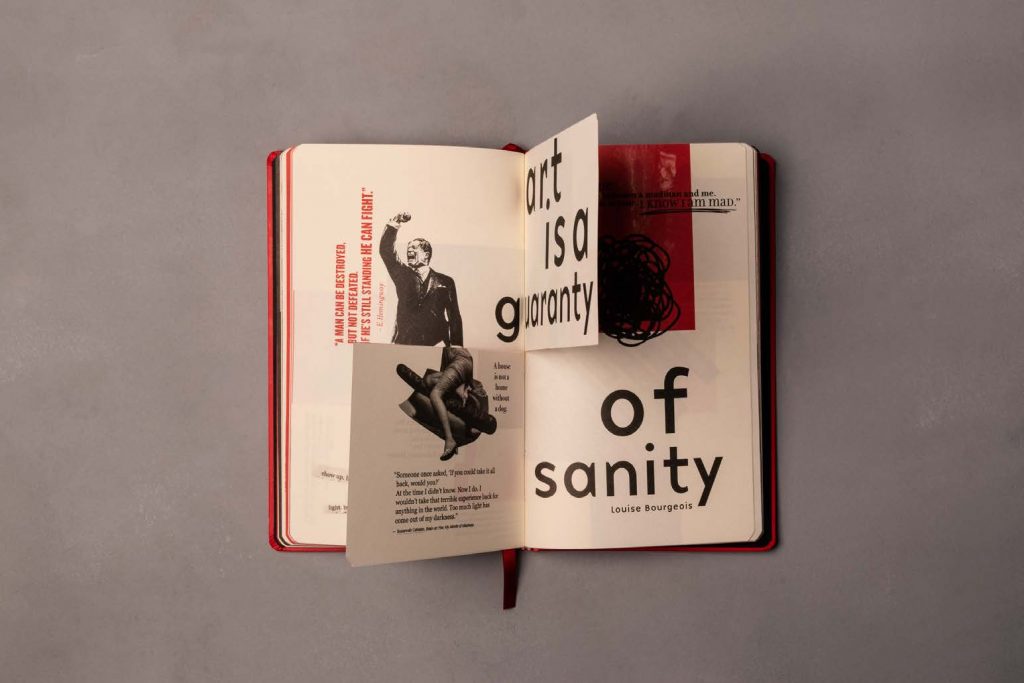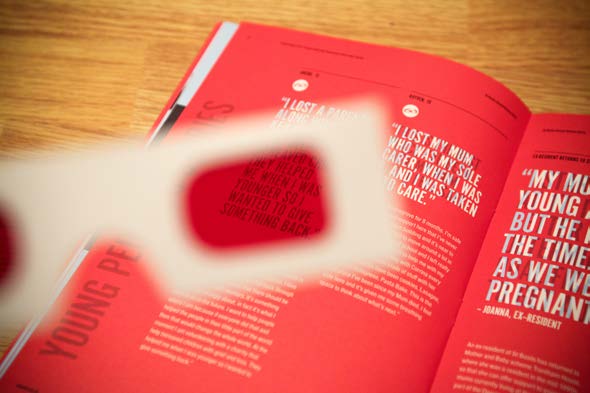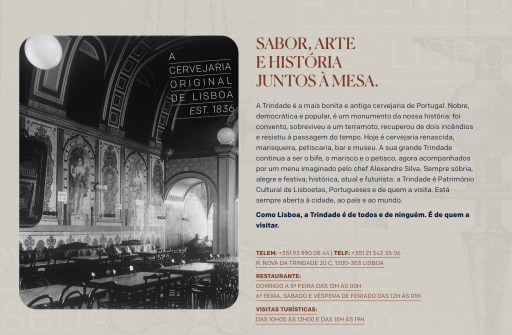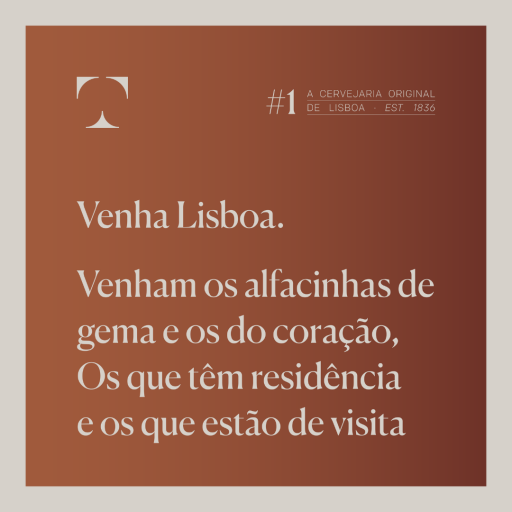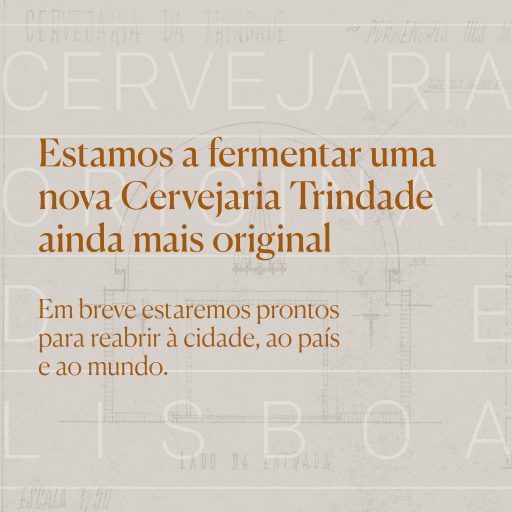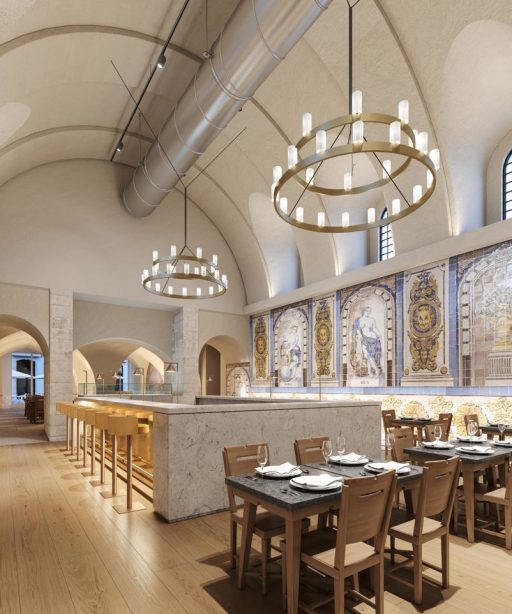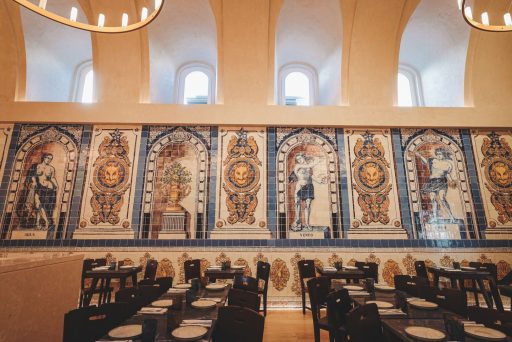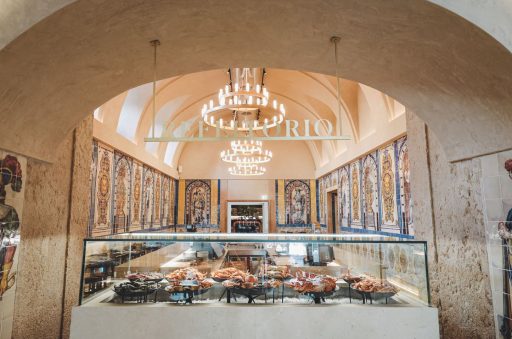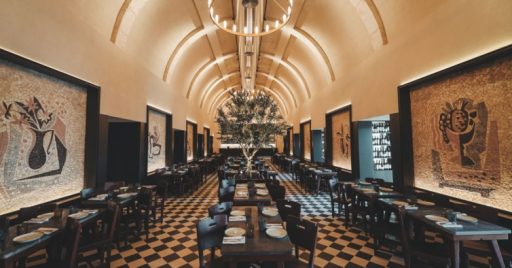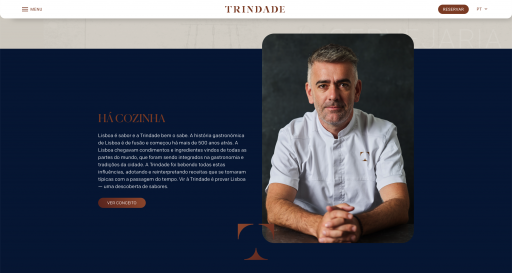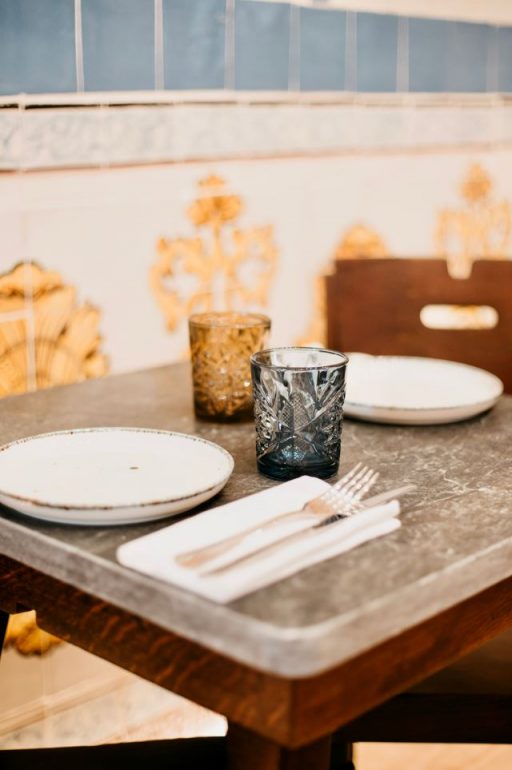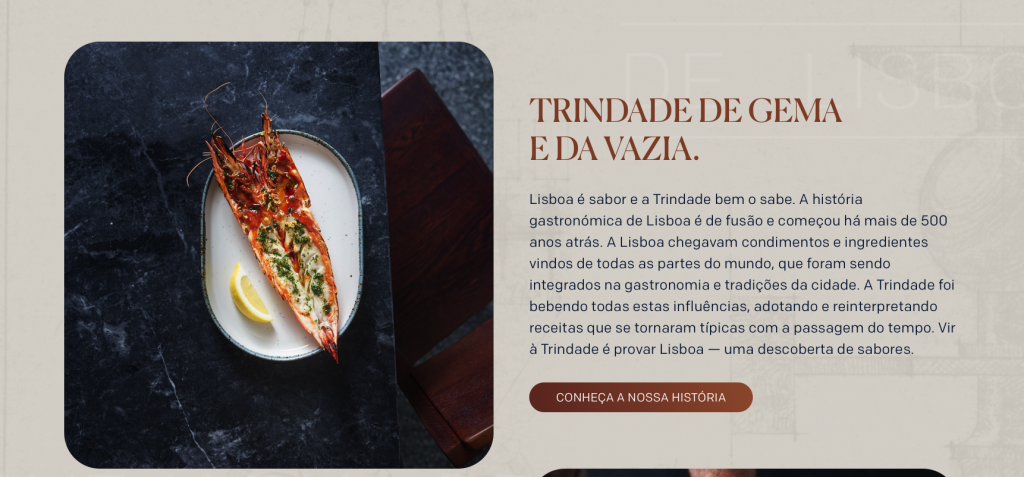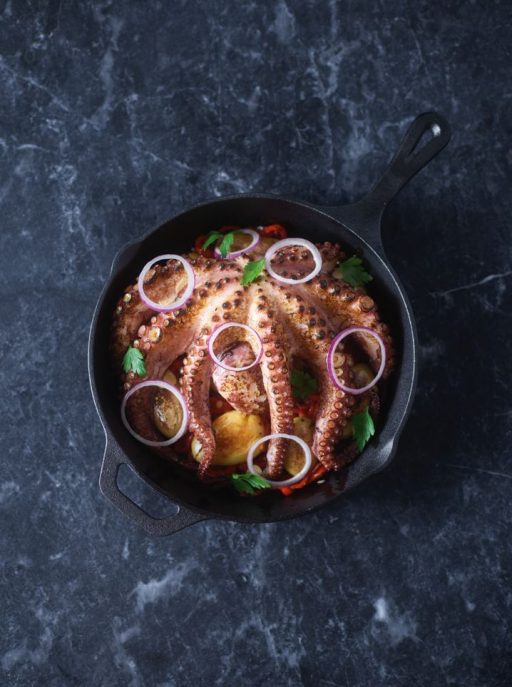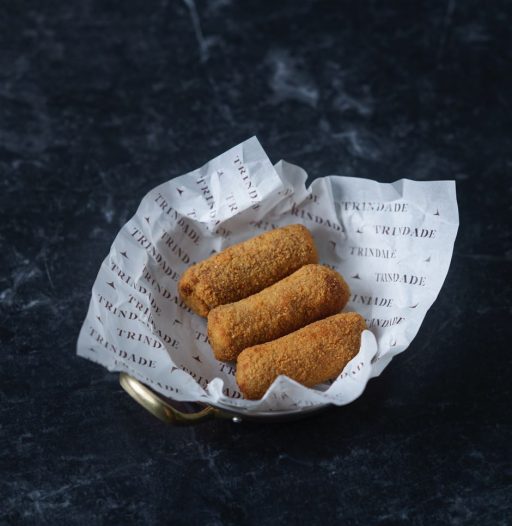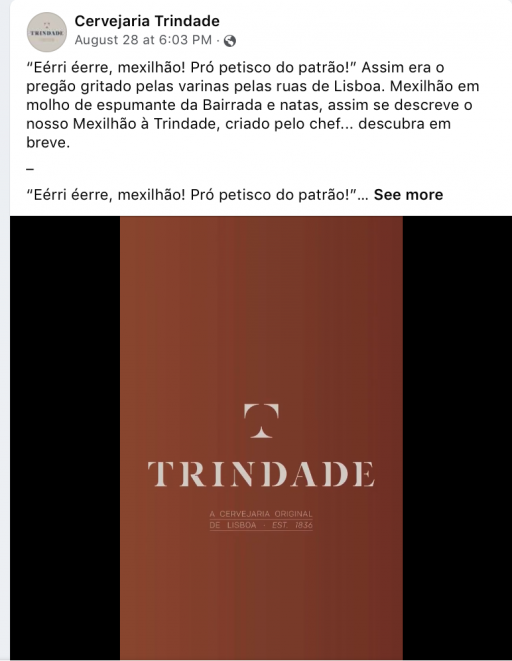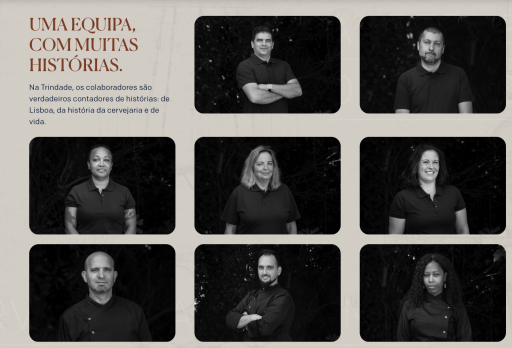Cervejaria Trindade
Purpose :: Futurista
Brand Strategy :: Futurista
Product development :: Alexandre Silva
Architecture :: Atelier Daciano da Costa
Design :: A Equipa
Project Management :: Portugália
Project type ::
purpose
branding
sustainability
Challenge
Founded in 1836 in an old Monastery built in 1286, Cervejaria Trindade is an iconic Lisbon brand. It was the birthplace of the first Portuguese beer and a bohemian center of gatherings and meetings of some of the most prominent figures of the Portuguese culture.
In 2019, as the space was being refurbished, was the right moment to rethink the brand positioning and concept, to change some negative local perceptions, such as Trindade becoming a touristic place, no longer welcoming to locals.

Process
We conducted strategic and creative workshops with top managers and in-depth interviews with various employees. We analysed consumers’ interviews done immediately after experience.
F01
Rebranding and purpose definition process
We concluded that, over the years, Trindade had decreased its value.
The market was transformed by fresh creative and thrilling concepts introduced over the years (Figure 2 and Mood boards M1-M4) while Trindade lost its appeal.
Clearly influenced by some signs of mass production — especially the cold huge space crowded with too many lined up tables, and occasionally pre-prepared food waiting to be ordered — made consumers question the quality perception.
Further, Trindade lost most of its positive symbolic meaning. The bohemian side of Trindade was completely lost — it had become a touristic mainstream restaurant with an artificial medieval concept —connecting monastic tradition and beer production, something that historically never happened in Portugal.
The origin — Lisbon — was compromised by these choices, as Trindade became a place Lisbon citizens no longer feel at home. The distancing of the Portuguese clients threatened the concept attractiveness to tourists as well, who prefer to live as locals and go where locals go.
F02
Competitive map
S01. / M01.
Taverns segment / mood board:
popular, authentic, value food
S02. / M02.
Signature restaurants segment / moodboard:
sophisticated cuisine
S03. / M03.
High quality segment / moodboard:
cool trendy restaurants
T / M04.
Trindade Experience
S04.
Traditional beer houses segment
S05.
Irrelevant / undifferentiated
M01
M02
M03
M04
Solution
Lisbon origin is the most authentic Trindade’s trait: the beef and its unique sauce is specifically from Lisbon and Trindade is bond to the history of the city culture.
Solution
Lisbon origin is the most authentic Trindade’s trait: the beef and its unique sauce is specifically from Lisbon and Trindade is bond to the history of the city culture.
Hence, our proposal was to recenter the concept in Lisbon, and explore Lisbon’s gastronomy in a reinvented Lisbon Cervejaria.
The descriptor:
Cervejaria Original de Lisboa (Original Lisbon Cervejaria).
We also reached the insight that Lisbon belongs to everyone and nobody at the same time. As both a harbour-city and a capital, Lisbon gathers people from everywhere, and is a melting pot of influences. So its own culture and gastronomy is often ignored, devalued and hardly recognised, if compared to other Portuguese regions. Lisbon’s traditions, old and new, are often lost. Lisbon needs someone to value its particular heritage, and Trindade could do it.
As an iconic Lisbon brand, Trindade can now embrace a bigger role in the city and a bigger purpose beyond what it serves for dinner. Trindade will stand for Lisbon discovery: to research, register and share Lisbon’s culture and gastronomy. It can also be a place of dialogue about the city and its citizens. Through Trindade, they can express how they feel about the city at different levels. Trindade will enrich the city cultural heritage and strengthen the city and its citizens sense of identity.
The brand experience was designed to recreate a discovery process: we designed different curiosity triggers and clues that to allow the discovery of stories and small details about the city.
The space was segmented in different experiences: from a more informal atmosphere with tapas being served, to a sophisticated seafood experience. We mix different sensory stimuli about the city to simulate the city plasticity.
brand identity inspiration colours and textures
brand identity composition inspired in the city layers: traditional and new mixed layers
Menu / restaurant look book allowing small discoveries
M05
Brand experience semiotic inspiration moodboard
M06
Look book exemplified: dishes and stories about the city
